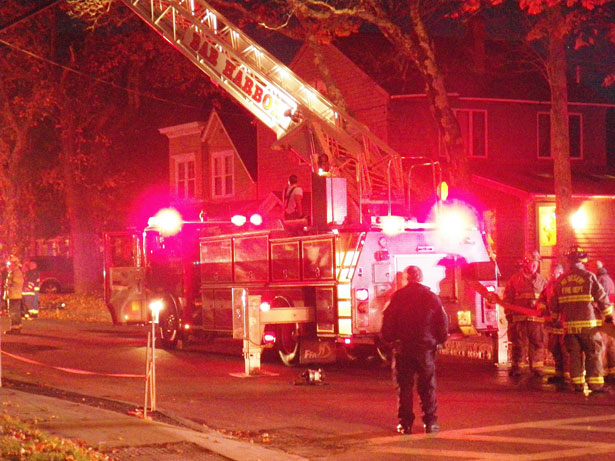Nothing But What You’re Wearing… Then What?
What if you woke tomorrow with nothing but what you have on? For the sake of functionality, let’s assume you went to sleep in your jeans and t-shirt (no, we aren’t going to get into whether it is appropriate to go out in public wearing your pajamas – it isn’t about that!). What if your job was gone, you had no computer, no car, no bike, no spare clothes, no food, nothing that you’ve accumulated or worked for. Your bank accounts have a zero balance, and while you do have your wallet, you do not have any other personal documents. You do NOT have your cell phone. You can’t GET a cell phone, because you have no money.
Oh… and your credit is destroyed.
You may think that this would not happen, but there are situations, less remote than you think, which can put you in exactly that situation.
What do you have left?
How do you recover?
And how in the WORLD do you prepare for that kind of disaster?
You have some VERY valuable assets left, but they aren’t the kind that most people think of when they consider how to prepare for potential catastrophe.
- Your faith. You are going to need a lot. The more you build now, the better. Get your relationship with God together. You are going to need Him.
- Attitude. If you have persevered in your life, and made a practice of not giving up, it will serve you well. Practicing facing challenges and practicing constructive problem solving, will stand you in good stead.
- Your loved ones. Well, let’s face it. You are going to lose some of them when disaster strikes. Some people just can’t handle it – they have to blame someone, and blaming you is easiest, because that relieves them of the responsibility of helping you. But half of them or more will gather round to lift you up, and help you as best they can. It won’t be much – such a disaster is more than anyone can fix for you. But strengthen the relationships with those closest to you – disaster either breaks a relationship, or strengthens it, and that largely depends on how healthy the relationship is to start with, and how committed the individuals are to each other. If your primary relationships are in trouble, repair them now – it is part of being prepared.
- Your skills. The skills that can help you may be widely varied – good job hunting and interview skills, good trade skills that can be applied to self-employment, good bartering skills, good salvaging skills, good work ethic, willingness to work hard at whatever honorable work you can, the ability to make the most of anything you are given (canning and cooking skills, mending skills, mechanical skills,etc) – it is harder to obtain working things than to obtain non-working things, and if you can repair things, you have a distinct advantage. Other skills can help also – frugality, gardening, hunting, being able to entertain yourself free, even basic skills like riding a bike.
Probably the easiest thing in that bunch to improve, are skills. There is always someone to teach you, or a book to help you learn. The other things are more individualized, and perhaps not as easy to pin down, but just as important.
The political climate we live in makes the potential for this kind of situation more of a real risk. When we consider what we would do if we were left with nothing that we think of as being “survival” items, it brings us back to having to depend upon others, and upon ourselves and God. In that respect, it is not a bad thing – no one can recover from such a thing on their own, and there is no shame in accepting help from genuine need.
We know too, that when we are prepared for less devastating disasters, with food storage, some wise self-sufficiency items, water, etc, then we are better able to share and help others who are in a situation where they cannot possibly meet their own needs. Helping others in need is truly a blessing to those who can give to victims of fire, flood, false imprisonment, crop failure, job loss, catastrophic illness, or other disasters that can affect anyone at any time.
Keep preparing for those things which would require you to have a food storage, or to live without electricity, or gather your own food from the wild. But prepare to have that taken away also – and think about what you’d need if it was taken away. Think about what you need within yourself – because THAT is what you take with you no matter what happens.
UPDATE: Our book on growing food from scraps and groceries is now available for download! Get The Scavenger’s Garden: Growing Food from Groceries and Scraps from Amazon for Kindle, or from our Firelight Heritage Farm Books website. If you have to start over with nothing, this book teaches you how to grow a garden without spending money for the garden.







